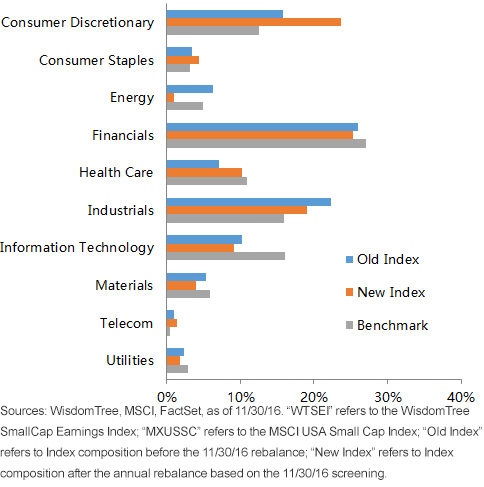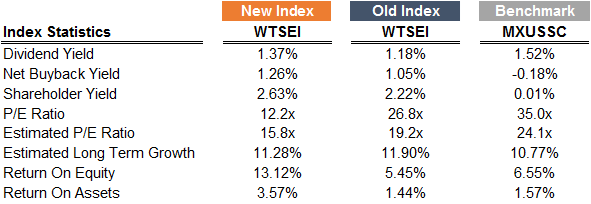A Fundamental Rebalance Case Study: The WisdomTree SmallCap Earnings Index


At WisdomTree, we believe strongly in relative value rebalancing. The act of rebalancing constituents of an Index back to their fundamental values is important, given our belief that stocks often overshoot their underlying fundamentals. Consequently, investors run the risk of paying too much for stocks that have become expensive compared to their fair value. A disciplined strategy of reweighting allocations back to attractively valued stocks through an annual rebalance process is an important element in managing market valuation risks. Typically, this results in the following:
• Companies whose share prices appreciated at a faster rate than their fundamentals would typically see a reduction in their constituent weight during the rebalancing process.
• Companies whose share prices did not appreciate or even dropped, but whose fundamentals were maintained or improved, would typically see an increase in their constituent weight during the rebalancing process.During periods when the market is worried about the U.S. economy and growth prospects, WTSEI tends to underperform large-cap stocks. Since July 8, when interest rates bottomed along with fears about economic growth, and later in November, small caps, and WTSEI in particular, started to meaningfully outperform the broader markets. In November alone, WTSEI outperformed the S&P 500 by over 10 percentage points and was ahead in 2016 YTD by an even wider margin through November 30 (24.3% vs 9.8%).
Change in Fundamentals
Changes In Sector Composition

• The Index saw large increases in the Consumer Discretionary (7.8%) and Health Care (3.1%) sectors, both primarily driven by poor relative price performance of those sectors and above-average earnings growth.
• The Index saw large decreases in the Energy (-5.2%) and Industrials (-3.3%) sectors, both driven by a decrease in earnings and strong relative price performance of those sectors.



